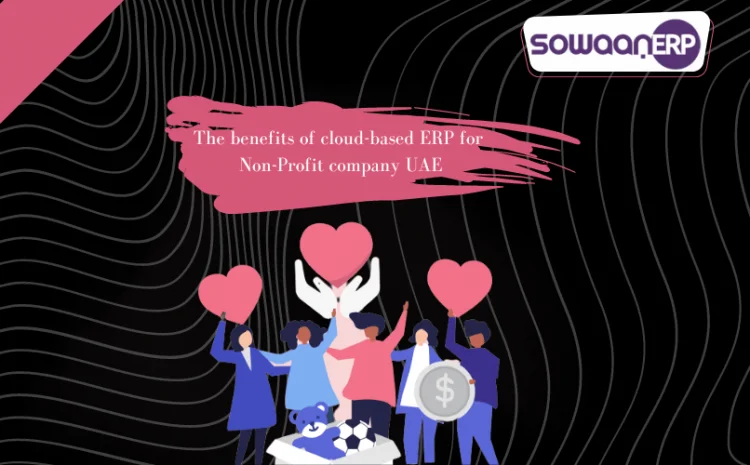
Software like ERP, or “Enterprise Resource Planning,” helps different parts of a company work together better to be the best in the market. Even though businesses usually use ERP software, nonprofit organizations in the UAE are starting to use it more and more.
A nonprofit company UAE can save money because they don’t need to buy lots of different software. Also, making their systems work better together can make everything run more smoothly. Plus, it’s much cheaper than other choices. So, using nonprofit ERP is a smart way to get the best results in the world of IT.
ERP Software Benefits for Nonprofits Organizations in UAE
Small and medium-sized businesses can really benefit from cloud ERP solutions. They help cut down on costs, make it easier to add new features, make companies more flexible, improve data safety, and reduce the need for IT staff.
What are the main good points of this? Have you ever thought about why ERP software for nonprofit organization in UAE is great for organizations all over the world? Here are the top seven benefits that the businesses we work with have seen.
Integrated system for organization
Enterprise resource planning (ERP) software covers everything a business does, like managing people, marketing, sales, taking care of customers, and handling money. The goal of the best ERP software in UAE is to make running a business easier and smoother. ERP software can change and grow with your needs by adding or taking away parts. You can even hire a company to make special parts just for your business.
Increase potential
When a business starts using ERP software for nonprofit organizations, it helps everyone communicate and share information better, which is good for the work they do.
Sharing information between departments gets quicker and easier, which makes the whole business more productive.
Integrated into Your Current Infrastructure
There are two main types of ERP software: cloud-based and traditional. Cloud-based ERP works over the internet, allowing you to access and store data online. Traditional ERP, on the other hand, needs to be installed on computers and servers in the office.
Fast and Valid Reporting
Using one program for all departments makes it easier to track and report on your fundraising activities. This way, the Board of Directors and other key people can quickly see how things are going.
Better Security
Your data in the ERP system is kept secure and safe. Even if there’s a problem with your server or computer, you can have backups of your data. Everything that happens in the program is recorded, giving you a complete view of your operations. You can also set rules on your data to keep it correct and secure.
Ability to gain access to additional business intelligence tools
With cloud ERP, you can easily put all your data in one place. This is really important for looking at your data closely. Most cloud ERPs have special tools that help you understand your data right away. This means you can make smart choices to reduce risks, save money, and earn more as your team checks on how the business is doing in real time.
Better accessibility, collaboration and flexibility
Cloud ERP makes it easier for everyone to use and access from anywhere, which is great, especially when many people are working from home. Big and small companies can bring everything together in one place. If your ERP is on the cloud, your company can be more flexible. Your workers can use all the software they need anytime and anywhere, as long as they have internet. Even if your company is in many places, you can still use cloud systems easily.
Final Thoughts
The cloud ERP model makes information instantly accessible. This means you can see what’s happening in every process and with all data in real time. It also makes it easier for different departments to work together and be more productive, because sharing and connecting data across the company becomes straightforward.
Employees who are on the move or working remotely can make important decisions quickly, responding to any changes in the business. So, when nonprofit organizations adopt ERP solutions, they see a big improvement in their overall systems.
